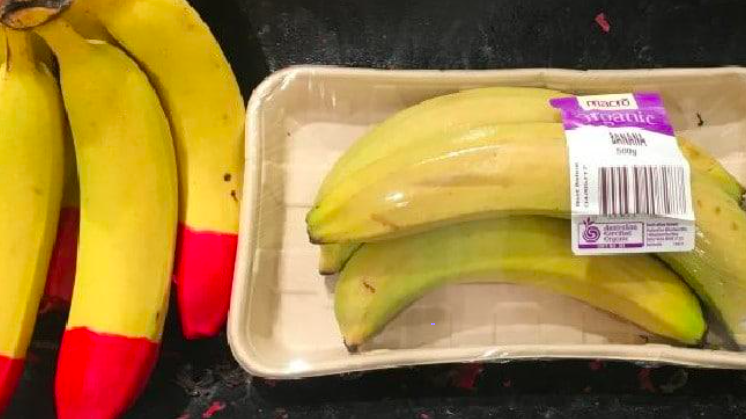Thinking about how we can tackle climate change can be quite overwhelming, but we’ve dialled it back to a few simple steps you can take at home to reduce your carbon footprint.
Stop buying single use plastics
We all know to use our reusable shopping bags, keep cups and metal straws, but the effort shouldn’t stop there. There are a few more sustainable swaps we can make in our home. In the kitchen, trade your cling-wrap and zip lock bags for reusable food covers from Seed & Sprout, and buy produce from the farmers market or The Source, where you can bring your own jars and containers. It goes without saying that there is zero reason to buy fruits and vegetables wrapped in plastic when many have their own skins to protect them.

In the bathroom, swap your plastic toothbrush for a bamboo one, and look for toiletries with recyclable and carbon-neutral packaging, such as Sukin, Trilogy, and Go-To Skincare. Otherwise, you can completely ditch the packaging, which is what Lush have done with their ‘naked’ shampoos, cleansers, and body lotions.
Avoid skincare products with micro-beads in them; they do not dissolve with water as they are made with plastic, and as a result are washed down the drains and into our ocean where they pollute the water and harm marine life. It is estimated that there will be more plastic in the ocean than fish by 2050 unless we take action; small steps such as these can help prevent this estimate from becoming a reality.
Reduce your power use
This is the easiest one to do! Reducing our consumption of electricity shouldn’t be limited to one hour per year for Earth Hour. Turn off appliances such as the kettle, toaster and microwave at the wall when they aren’t being used, and turn off the lights in rooms that you aren’t in. Energy saving lightbulbs such as LEDs and CFLs (the curly lightbulbs) are also a more efficient choice over traditional lightbulbs. Not only are all of these actions good for the environment, but also for your bank account when the quarterly power bill comes.

Cut down on meat consumption
The meat industry is a significant contributor to climate change, through greenhouse gases, deforestation and water usage. The Guardian reported that Western countries must reduce their meat consumption by 90% in order to avoid a “climate breakdown”. The way to do this is by eating a primarily plant-based diet. If you’re finding it hard to start out, then try limiting meat to certain meals or days of the week. ‘Meat-free Monday’ or ‘Wellness Wednesday’ are catchy ways to remember days where you can go without meat and try out plant-based recipes. Make it fun so that it doesn’t seem so intimidating!

Leave the car at home
It’s a bit of an obvious one, but if you live in a city or town that’s well connected with public transport, then take advantage of it. It’s much cheaper than a tank full of fuel, and helps to reduce your carbon footprint. Even better if you can walk, bike, or roller-skate.

Follow climate activists on social media
While you’re aimlessly scrolling through Twitter and Instagram before going to sleep, take a moment to follow climate activists who are passionate voices on the platforms. One of the most prominent activists is Greta Thunberg (Twitter: @GretaThunberg and Instagram: @gretathunberg). From calling out politicians for “not trying hard enough” to combat climate change, to speaking at the UN and EU, to encouraging us to protest, she’s a force to be reckoned with. Thunberg’s truly dedicated to her cause, even choosing to travel on a zero-carbon emissions yacht across the Atlantic to the US, rather than fly. Follow her, and other youth climate activists, to be inspired to passionately take action on climate change.

Let us know in the comments if you’ll be trying out any of these tips!


